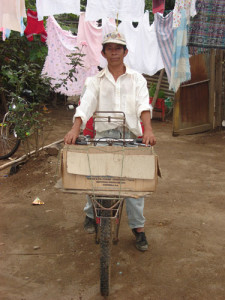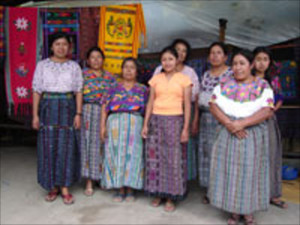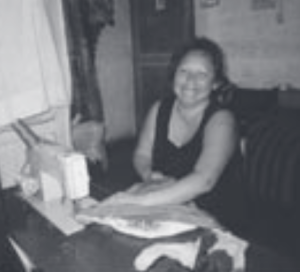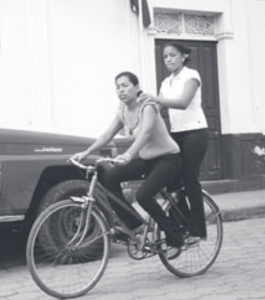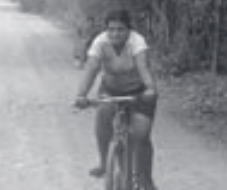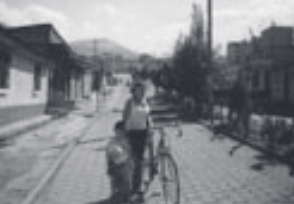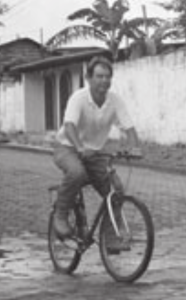Fall 2001 InGear
In November, 1999, P4P began shipping to FIDESMA (Fundación Integral de Desarrollo y Medio Ambiente). The first container of 438 bicycles was sponsored by the Golden Rule Foundation; a second shipment of 519 bikes was paid for in part by FIDESMA and partially by the Koinonia Foundation.
FIDESMA serves the highland indigenous community of San Andrés Itzapa, Chimaltenango, providing agricultural extension and other education services, small enterprise assistance, and other community development services. P4P shipped the first container based on a brief proposal from the Guatemalan organization. Due to the isolation of the community and the limited financial capacity of FIDESMA, as well as the linguistic and cultural gulf between the two partners, subsequent communication was sparse, and PfP had little idea of the impact of the first shipment other than that FIDESMA desired another shipment – generally a good indicator!
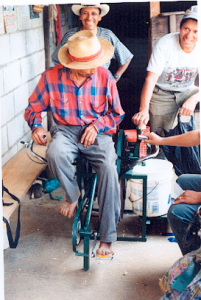
Finally, in March 2001, FIDESMA submitted a substantive report. For P4P, it was worth the wait, as the information presented was extensive and appears to justify the investment. Included in the report was a detailed inventory breaking down bikes by category, whether or not they had been sold, etc., per container. The information enabled P4P to better assess its own effectiveness and characteristics in collecting, selecting, and packing, as well as to assess the impact of the bicycles overseas and the potential for sustainability of the relationship.
FIDESMA reported that the project was able to cover its costs, and hence appeared likely to be sustainable. The reported commercial value of the contents of each container ranged from slightly over $12,000 to almost $15,000 (since that time, improvements in packing and the addition of large quantities of valuable new parts donated by the US bike industry has augmented the value of shipments). The reported costs—including not just recurring operating and shipping expenses but also a value-added tax to be rebated and one-time investments in facilities and tools—were under $10,000 per container. We found out more about beneficiaries. FIDESMA reported that 40% of the purchasers were farmers, 25% students, 30% laborers and tradesmen, and 5% working women. Shop employment comprised a mechanic/shop administrator and mechanic’s assistant, supplemented by three full-time apprentices and two part-time apprentices. FIDESMA is seeking a training institute to certify a six-month bike mechanic’s apprenticeship course.
FIDESMA interviewed half a dozen recipients of bicycles and shared the notes with P4P. All were positive, citing the savings in time getting to work, doing errands for the family, and getting to school. Edwin Paulich Velázquez, for example, reported spending as much as four hours daily on his bike, using it principally to cover the five kilometers to work. Not everyone uses the bike solely for work however. Another respondent — Carlos Arnoldo Bueno, who also uses his bike to get to work — specifically mentioned his newfound ability to engage in competitive racing.
José Siquinajay is the local mail carrier. Twenty-nine-years-old and married, José has for several years managed San Andres Itzapa’s mail and telegraph services. Each day he opens the post office and attends to the communication needs of the town. Twice weekly, he goes by bus to nearby Chimaltenango, the provincial seat, to pick up the mail. On his return, he utilizes his bike, obtained through FIDESMA, to deliver the mail throughout the town, covering distances up to two kilometers and up and down steep inclines. According to José, he saves time, gets the mail faster and sooner to customers, and is getting in good physical shape.
Finally, FIDESMA cited the long-term institutional benefits. Not only did the project benefit the community and raise the local group’s profile, the non-profit institution’s skills also strengthened it in business and project management, dealing with government institutions such as Customs and the Ministry of Finance, and generating income for institutional overhead.

